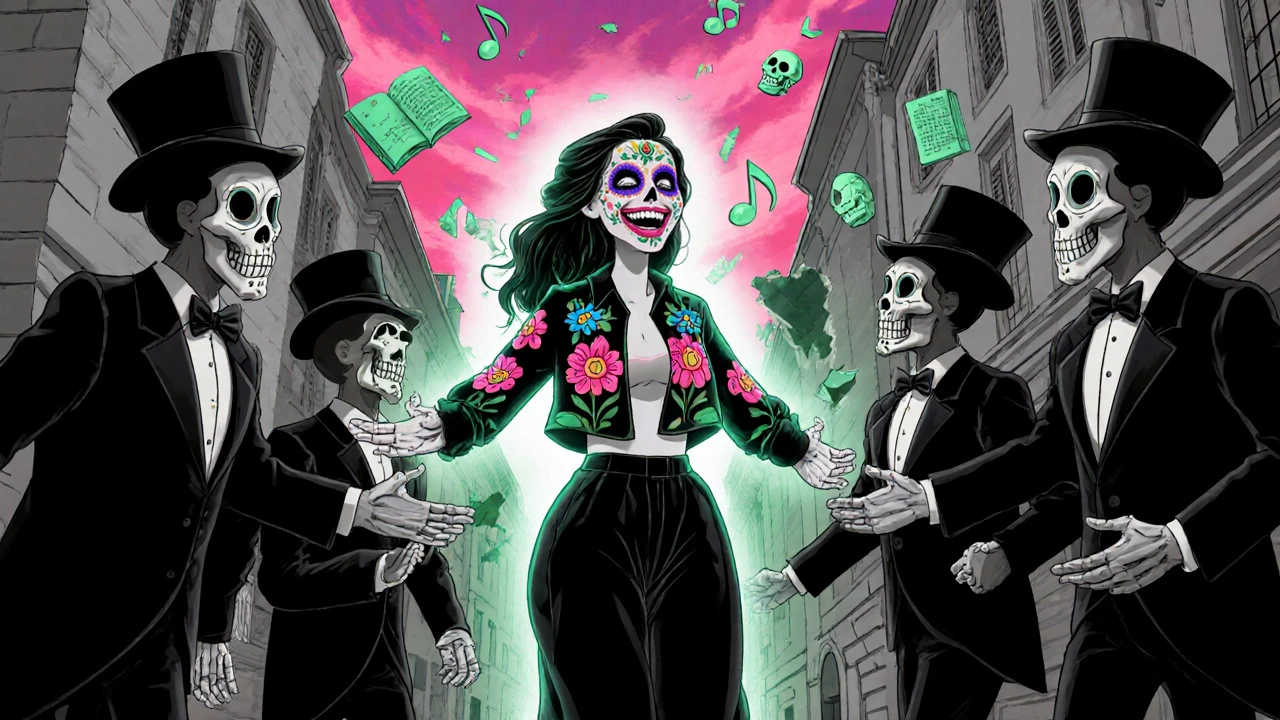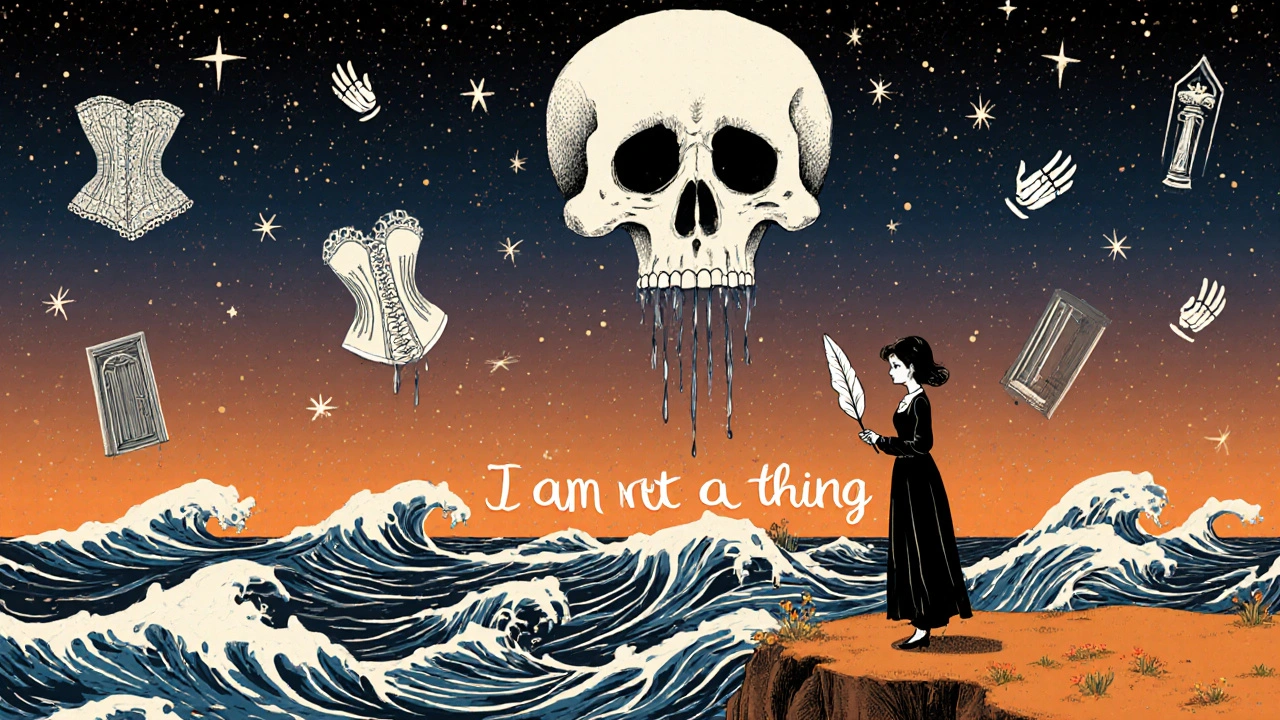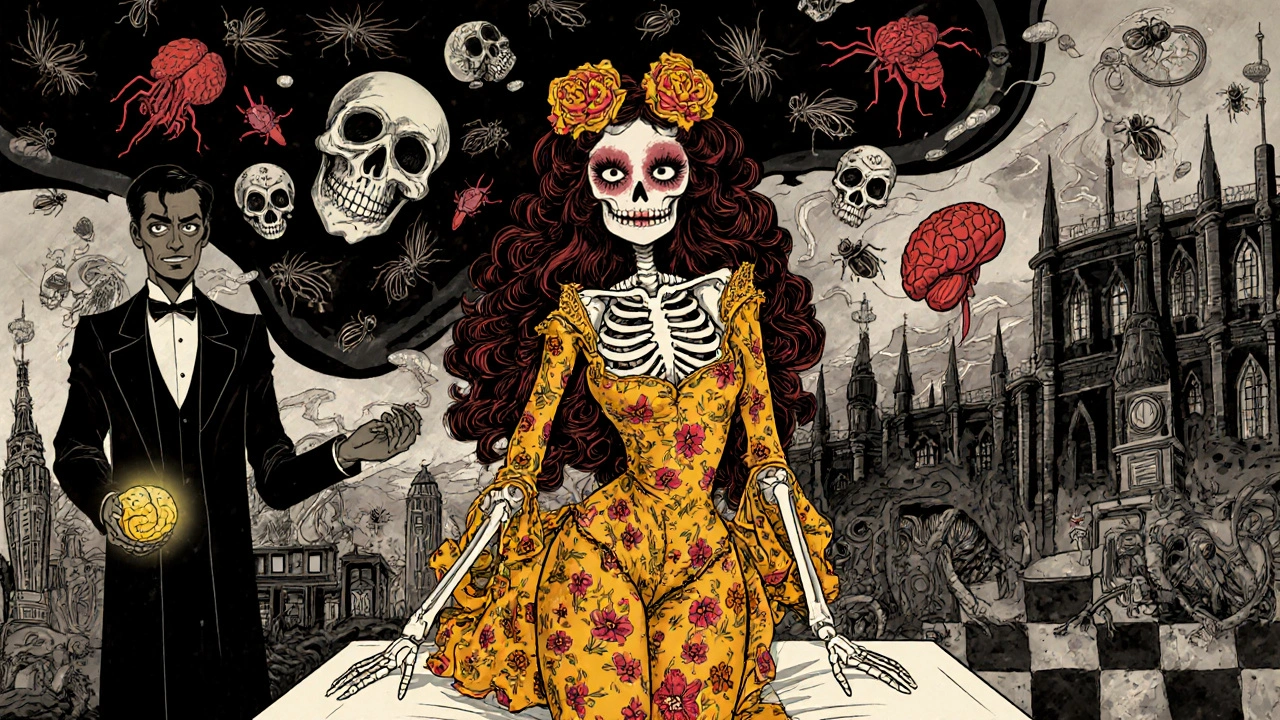Poor Things is not just a movie. It’s a full-body experience.
You walk in expecting a weird period piece. You walk out feeling like you’ve been rewired. Poor Things doesn’t ask you to like it. It doesn’t even ask you to understand it. It just drops you into a world where a woman is reborn with the brain of an unborn child, and from there, everything goes sideways-beautifully, messily, brilliantly.
Directed by Yorgos Lanthimos, the filmmaker behind The Lobster and The Favourite, this 2023 film is his most emotionally open work yet. It’s also his most visually daring. Emma Stone plays Bella Baxter, a woman brought back to life by a mad scientist (Willem Dafoe) who grafts the brain of his dead unborn daughter into her. She starts as a blank slate-giggling, crawling, chewing on insects-and slowly, painfully, learns what it means to be human. Not just to survive. To want. To rebel. To choose.
The world around her is a circus built on lies
Lanthimos doesn’t shoot Victorian London. He rebuilds it in Budapest with sets that look like they were painted by a fever dream. The colors start in washed-out black and white, with fish-eye lenses and warped angles, mirroring Bella’s confused, childlike view. As she learns, the world explodes into saturated reds, greens, and golds. The costumes, designed by Holly Waddington, are a masterclass in anachronism. Bella’s first dresses are tight corsets that choke her. Later, she wears loose trousers and open shirts, moving freely, like she’s finally shed a skin she never asked for.
The camera never looks away. Not when she’s vomiting. Not when she’s having sex. Not when she’s screaming at a man who thinks he owns her. Lanthimos films these moments with the same deadpan stare he used in Dogtooth-no judgment, no pity. Just observation. And that’s what makes it so powerful. You’re not supposed to look away. You’re supposed to ask: Why do we find this shocking?
Emma Stone doesn’t act-she becomes
There are performances. And then there’s Emma Stone in Poor Things. She doesn’t play Bella. She inhabits her. Every stumble, every giggle, every raw, unfiltered outburst feels real. She learns to walk like a newborn. She speaks in fragmented sentences that slowly grow into full thoughts. She laughs like a child discovering fire. And when she finally finds her voice-loud, angry, unapologetic-it doesn’t feel like a climax. It feels like a revolution.
She carries the entire film on her shoulders. And she doesn’t just carry it-she lifts it. Critics called it a career-defining turn. That’s an understatement. This isn’t just her best performance. It’s one of the most fearless in modern cinema. She’s funny. She’s grotesque. She’s heartbreaking. She’s terrifying. And she never once asks for your approval.

It’s not just a feminist film. It’s a reclamation
People keep comparing Poor Things to Barbie. They’re not the same movie. Barbie is a satire with glitter. Poor Things is a scalpel. It cuts through the idea that women need to be rescued, educated, or perfected. Bella doesn’t need saving. She needs space. And the men around her-her creator, her lover, her husband-keep trying to control her. They call her crazy. They call her dangerous. They call her a child. But she’s not. She’s becoming.
The film doesn’t preach. It shows. Bella travels across Europe, seduces men, reads philosophy, gets drunk, gets arrested, and finally, writes her own story. She doesn’t want to be equal to men. She wants to be free from their definitions. And that’s the quiet, radical heart of the film. It’s not about equality. It’s about autonomy.
The sound design is its own character
The music by Jerskin Fendrix doesn’t support the story-it argues with it. There’s a glass harmonica that sounds like ghosts whispering. A prepared piano that clicks and clacks like a machine trying to understand emotion. The score never lets you relax. It hums under scenes of intimacy, ramps up during chaos, and drops out completely when Bella is alone. It’s unsettling. It’s perfect.
The sound of her first steps. The squelch of her eating raw meat. The slap of her palm against a man’s face. These aren’t background noises. They’re declarations. Lanthimos doesn’t just want you to watch. He wants you to feel it in your bones.
It’s not for everyone. And that’s the point
Some viewers walked out. Some called it too long. Too sexual. Too strange. One Reddit user said they didn’t understand the ending. Another said it was the best movie they’d ever seen. Both are right.
The film is 141 minutes. It’s rated 18+. There are scenes of sex, violence, and bodily functions that aren’t glamorized-they’re just shown. Like breathing. Like eating. Like existing. And that’s what makes it hard. We’re not used to seeing women’s bodies treated like they’re ordinary. Not objects. Not symbols. Just bodies. Living. Changing. Demanding.
That’s why the box office numbers are wild. A $35 million budget. $113 million worldwide. An arthouse film with no superheroes, no CGI, no sequel bait, and it outgrossed most studio blockbusters. Why? Because people are tired of safe movies. They’re hungry for something that dares to be strange, smart, and sincere.

It’s not just a movie. It’s a movement
After its release, film schools in New York and Los Angeles started using Poor Things as a case study in surreal storytelling. Critics wrote academic papers linking it to posthumanism and feminist theory. Searchlight Pictures is already developing Lanthimos’s next project. Emma Stone’s name is now spoken in the same breath as Meryl Streep and Frances McDormand.
This isn’t just a win for Lanthimos. It’s proof that audiences still crave originality. That they’ll sit through 141 minutes of a woman learning to scream, to love, to live-on her own terms-if the filmmaking is bold enough.
It’s not perfect. Some jokes fall flat. The middle drags a little. But it doesn’t need to be perfect. It needed to be true. And it is.
What you should know before watching
- It’s not a romantic comedy. Don’t expect a happy ending. Expect a messy, beautiful awakening.
- It’s not for kids. The nudity and sexuality are explicit, but never gratuitous. They’re part of Bella’s journey.
- Watch it without expectations. Let it confuse you. Let it upset you. Let it change you.
- It’s not about the plot. It’s about the feeling. The transformation. The silence after the final scene.
Is Poor Things based on a true story?
No, Poor Things is based on the 1992 novel of the same name by Scottish writer Alasdair Gray. The story is a fictional, surreal reimagining of Frankenstein with feminist themes. It’s not inspired by real events, but it uses historical settings to explore timeless questions about identity, control, and freedom.
Why did Emma Stone win an Oscar for this role?
Emma Stone’s performance is a physical and emotional tour de force. She portrays Bella’s transformation from infant-like innocence to sharp, defiant adulthood with startling precision. Her timing, voice modulation, body language, and raw vulnerability created a character unlike anything seen in modern cinema. Critics and voters recognized it as a once-in-a-generation performance-bold, unpredictable, and deeply human.
Is Poor Things similar to The Favourite?
Both films are directed by Yorgos Lanthimos and feature sharp dialogue, period settings, and women fighting for power. But The Favourite is about court politics and manipulation. Poor Things is about liberation. Bella doesn’t want to climb the ladder-she wants to burn it. The tone is warmer, more emotional, and visually more experimental. It’s Lanthimos evolving, not repeating.
What’s the deal with the black and white scenes?
The black and white cinematography represents Bella’s early state-limited perception, childlike thinking, and isolation. As she gains knowledge and confidence, the world shifts into color. It’s a visual metaphor for awakening. The change isn’t sudden-it happens gradually, matching her emotional growth. The shift isn’t just aesthetic. It’s psychological.
Is Poor Things worth watching if I don’t like arthouse films?
If you’ve ever felt trapped by expectations-of how women should act, how stories should unfold, or how movies should look-this film will speak to you. It’s strange, yes. But it’s also funny, moving, and surprisingly accessible. You don’t need to love avant-garde cinema to feel Bella’s journey. You just need to be willing to sit with discomfort. And if you are, you’ll leave changed.
Where can I watch Poor Things?
The film is available for digital rental or purchase on platforms like Apple TV, Amazon Prime Video, and Google Play. It was released on Blu-ray and DVD in March 2024. It’s not currently on major subscription streaming services, but it occasionally appears on curated arthouse platforms like MUBI or Criterion Channel.
Final thought: Don’t just watch it. Let it haunt you
You’ll remember the way Bella laughs. The way she looks at a mirror and doesn’t recognize herself. The way she finally says, "I am not a thing." That line doesn’t land because it’s poetic. It lands because it’s true. And for a woman who was built by a man, owned by a man, and judged by a world that didn’t understand her-it’s the only thing that matters.


